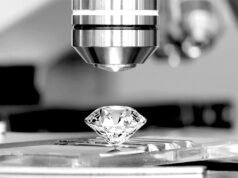It’s no secret that I’m a huge fan of low carb, high fat diets. I’ve been eating a high fat, low carb diet for almost 3 years now. I’ve lost a lot of weight, about 70 pounds total, and I’ve maintained it without any effort or difficulty. I’m not a doctor, nutritionist or dietician, so please don’t try to contact me about any diet advice you might have.
It’s been a tough year. Your body is changing, and you’ve got all these new physical and emotional changes that are making you really unhappy. At the same time you can’t stop eating carbs. So add up all the stress you have, the friends who are leaving you, the change in your body, and the fact that your gym membership has been canceled and the weight gain may just be too much.
I’m addicted to carbs. I mean addicted. I can’t have them without feeling terrible and having serious cravings. I’m starting to feel like I’m on the verge of gaining weight, and I’m worried.
When you’re dealing with significant issues, how do you overcome your sugar addiction? And why is it that after a day of fasting, there is an overwhelming need for sweets at night?
Bitten Jonsson, RN, our food addiction specialist, addresses these and other issues this week:
These interconnections. Help!

Bitey, hello there.
My wife, daughter, and I began a low-carb diet in February of this year, and it went well. Then, in June, we had cake for my wife’s birthday, and the snowball effect continued. We are in desperate need of assistance.
I decided to start the new day with what I had eaten the day before and then return it for the remainder of the day. I made an effort to support my family, but if I fail, they will as well. I’m hooked to the point that I don’t know where to begin, how to continue my day, or how to proceed.
Thank you so much for your assistance if you are able to assist me. Peter
Peter, I really sympathize with you, and I understand that relapses are so frequent that most of us will have to cope with them many times throughout our recovery. I’ve gone there many times. For me, information was the key. I was able to seek out and utilize more recovery medications after I grasped the physical aspect of addiction, the biochemistry of addiction in my brain. Willpower is worthless in this situation.
Willpower is worthless in this situation

Your brain’s reward systems will slowly but steadily heal as we detox from sugar/flour, like you did in February. Sugar affects neurotransmitters and receptors in the brain, creating addiction. To explain, I’ll give an analogy. If you cut yourself, the wound will take time to heal and you will have scar tissue for the rest of your life.
Addiction is a sickness that develops over time (which gets worse over time). Once we realize this, we must alter our whole lifestyle to improve, not just our food, but this is the most essential first step; it lays the groundwork for us to be able to take the following stages.
This is known as up-regulation in the reward system, and when we consume sugar/carrots, our clever brains create additional receptors as a result of the increased release of neurotransmitters (dopamine, endorphins).
This discharge gives us a pleasant feeling at first, and a so-called euphoric memory and addictive memory pattern forms. This very pleasant sensation serves as a reminder that we were born with a sensitive reward system. It’s addicting, and we’ll never be able to get enough of it.
The more sugar we consume, the more neurotransmitters are released until your body stops producing them, leaving you with fewer neurotransmitters but more receptors. As a result of all the sugar we consume, we begin to feel depressed, tired, irritable, unhappy, craving, and so on. Your smart brain is now down-regulating, which means it is hiding the extra receptors it created when it was up-regulating.
Now we’re in a terrible mood; some of us are sad and/or awake yet exhausted and anxious. Unstable blood sugar levels, as well as hyperinsulinemia, obesity, and type 2 diabetes, are all quite prevalent. The bodily manifestations… Sugar’s impact diminishes, while the need for sugar grows.
Many of us begin drinking here and become alcoholics as a result. That’s exactly what I did. This is referred to as awareness. All addictions, including alcohol, opioids, street drugs, and gambling, include up- and down-regulation, which is why we now refer to addiction interaction disorder as a disease with various outcomes.
As a result, even one piece of cake, bread, candy, or anything sweet induces a full-fledged relapse. That’s why a single piece of cake, bread, candy, or other sugary food triggers a full-fledged relapse, since the blocked receptors scream and beg for more.
So you should educate yourself on the addiction brain by reading Vera Tarman’s book Food Addiction, joining our Facebook support group Sugar Bomb in Your Brain, and looking for support groups in your area. Explain to your family that you are not permitted to consume sugar or flour at home.
Talk about relapses and be aware of potentially dangerous occasions such as birthdays, holidays, and so on. Develop a plan to cope with it, create plans for each day, including how, when, and what you eat, and this is also why us sugar addicts can’t drink alcohol since it leads to relapse.
Take it day by day and be patient with yourself.
Request, I hope you a quick recovery.
After a day of fasting, why do you have overwhelming sugar cravings in the evening?

Greetings, Mrs. Jonsson!
Since July 2017, I’ve been experimenting with intermittent fasting. I’ve gotten a lot out of it, and I’ve shared it with a lot of others who have gotten a lot out of it as well.
In general, I fast every night beginning at 8 p.m. and eating again at 6 p.m. the following day. I followed the LCHF diet as well. However, even if I am satisfied after a meal, I have an insatiable need for sweets – cake, chocolate, ice cream, etc.
I’m not going to be able to control that desire until it’s fulfilled. This prevented me from maximizing the benefits of intermittent fasting and the LCHF diet. Then there’s the guilt, and, I suppose, the disturbed sleep as a result of the sugar.
First and foremost, why is there such a strong desire? He’s never been so out of control in my life. Second, what are my options for resolving this issue? It’s very upsetting for me since I’ve never felt so out of control before, and I’ve always been a pretty healthy person. This is out of character conduct.
Thank you for your time, and I hope to hear from you soon.
Sincerely yours, Manola
Manolo, what’s up?
I know that intermittent fasting has helped a lot of individuals, but I don’t advocate it for those who have a sugar addiction since precisely what you’re experiencing will happen again and again.
Keep in mind that our illness is located in the reward system of the brain, which is the most basic portion of our brain, intended for survival. It’s also known as poor wiring. To avoid being addicted, you must realize that our biology is different and that hunger generates a survival requirement.
I suggest that you read Dr. Vera Tarman’s book Food Addicts, which explains everything extremely clearly. We are only allowed to eat three meals each day and nothing in between.
Request, I hope you a quick recovery.
Hey there! It’s Matthew, the guy who wants to lose weight. Today I am going to share with you a story that helped me to understand why I was eating so much bread and rely on carbs. It was a very difficult subject for me to deal with, but I think that I am ready to share it with you to help you understand some of your habits and why you are eating the way that you are. Read more about how to overcome carb addiction and let us know what you think.
Frequently Asked Questions
How do I stop my addiction to carbs?
This is a difficult question to answer. Its not easy to stop addiction in general, but if you are trying to stop your addiction to carbs, I recommend that you try and eat less carbs.
Can I be addicted to carbs?
Yes, you can be addicted to carbs.
Why do I always crave for carbs?
This is a question that cannot be answered with a simple answer. There are many factors that can contribute to your craving for carbs, such as what you ate before, how much sleep you got the night before, and more.




